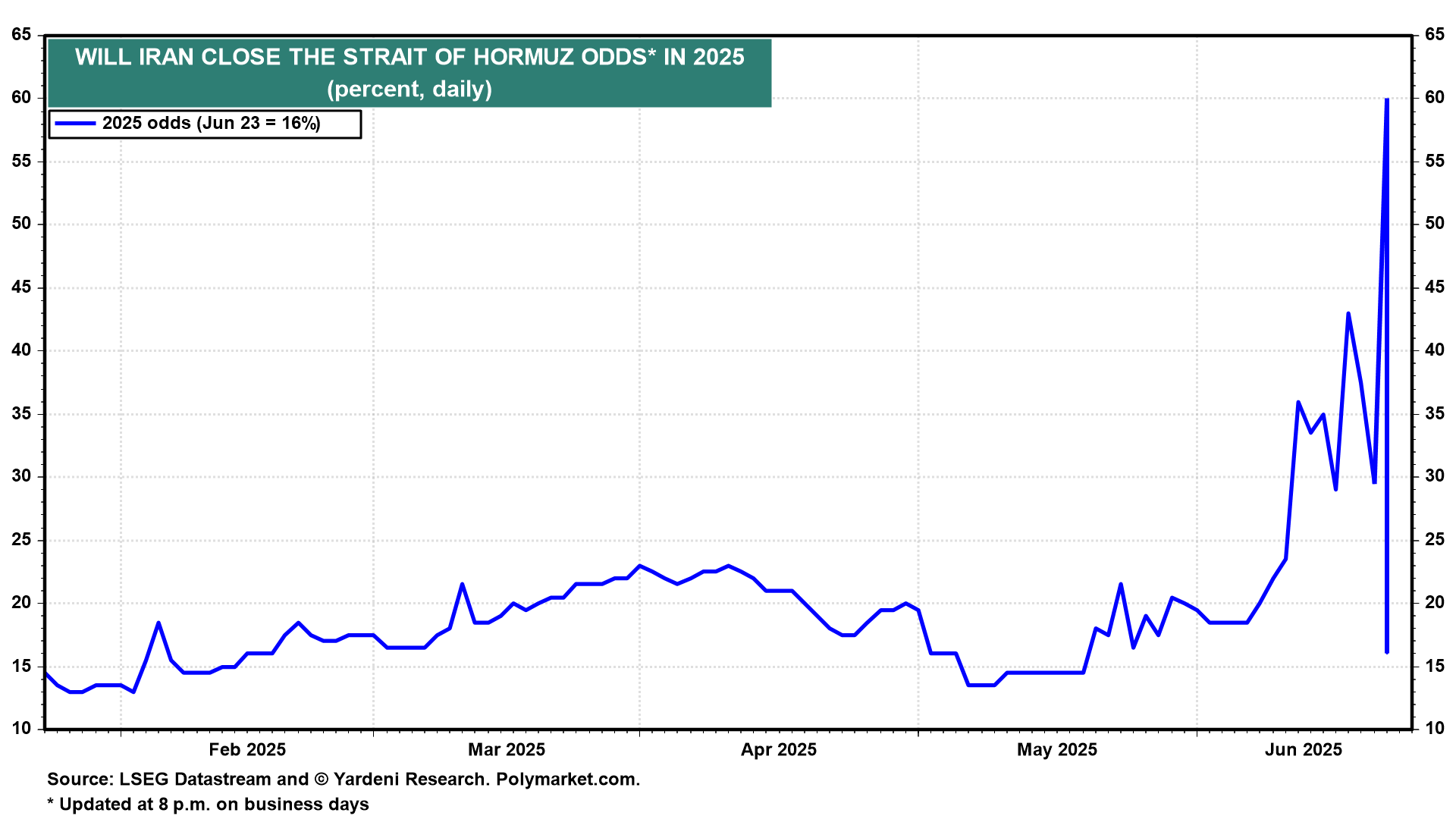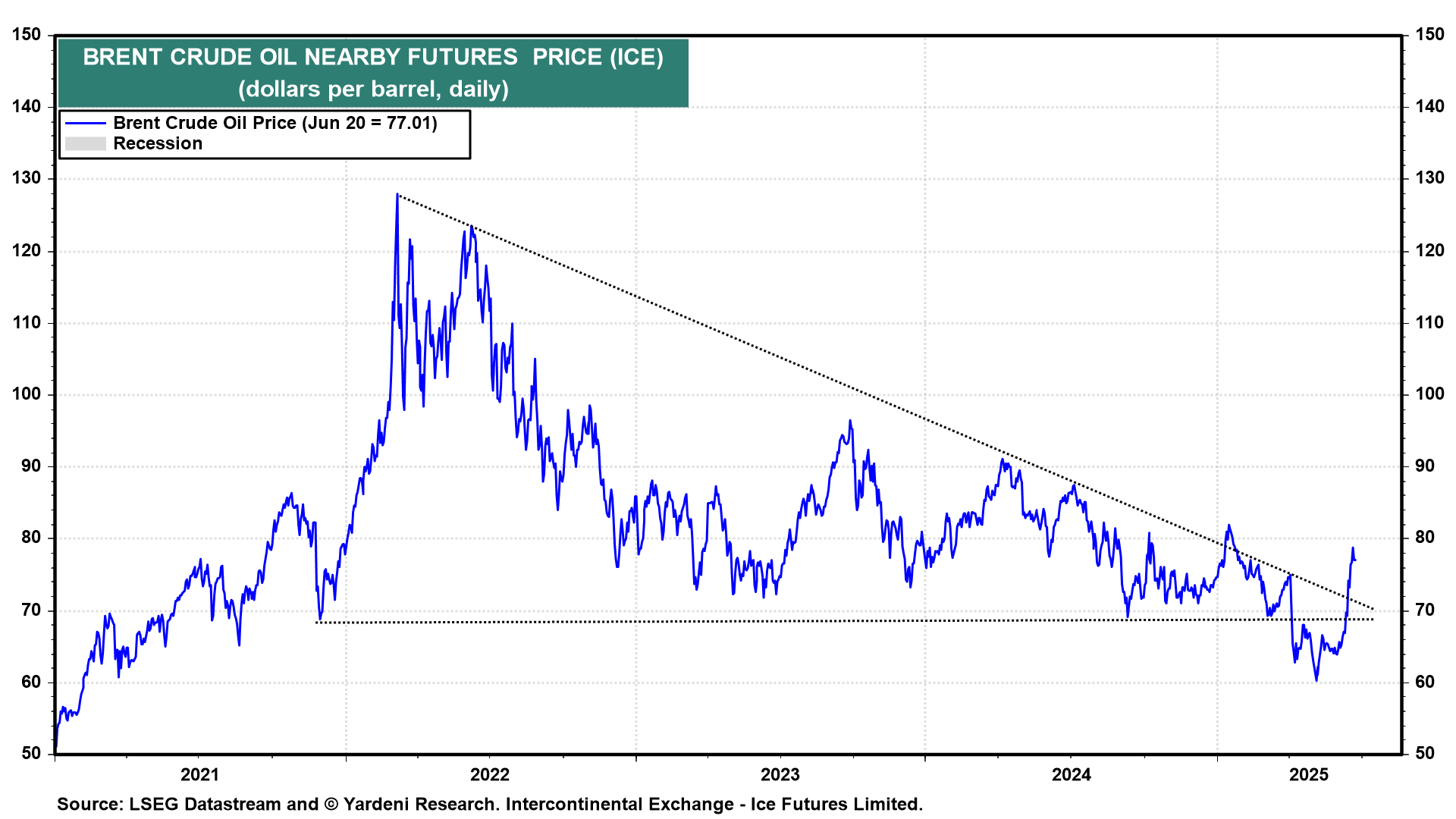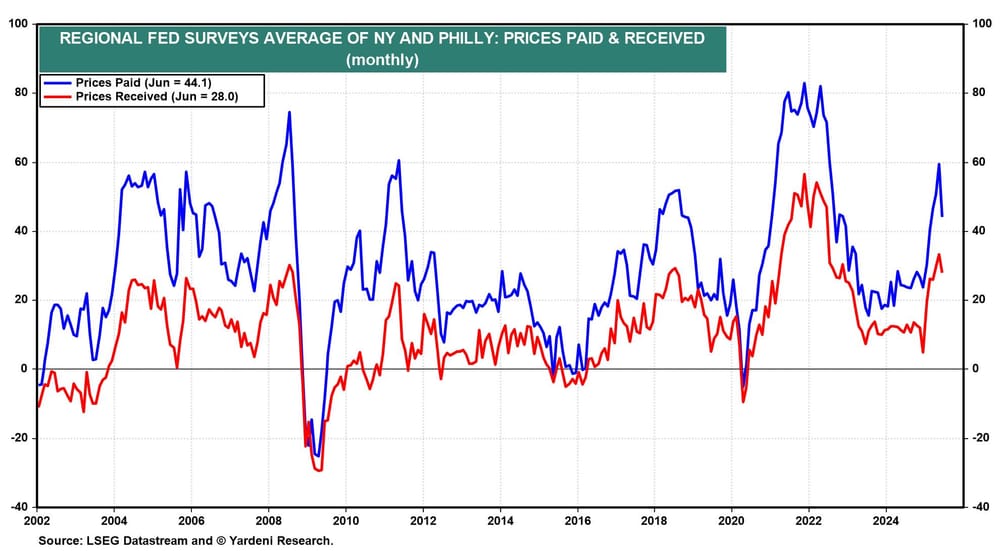Missed the webinar? Here are Investing.com’s top 10 stock picks for 2026
Yesterday morning, Iran launched a missile attack on the US military’s Al Udeid Air Base in Qatar in retaliation for US airstrikes on Iranian nuclear facilities the previous day.
The attack involved short- and medium-range ballistic missiles, with Qatar reporting that its air defenses intercepted most of them, and no casualties were reported. Earlier in the day, President Donald Trump thanked Iran for giving the United States advance notice of the coming missile strike!
Stock prices rallied on the news because it greatly reduced the likelihood that Iran would retaliate by blocking the Strait of Hormuz. Polymarket.com showed that the odds of this outcome plunged from 60% on Sunday to 16% (chart).
The odds of a US recession in 2025 edged down to 27% from 66% on May 1. Instead of a blockade, we had reckoned that Iran would sue for peace. Last evening, Trump declared on social media that the "12-day war" between Israel and Iran was set to end in a ceasefire. (There was no immediate word from either country on the ceasefire, and the terms of the announced deal were unclear.)
The price of a barrel of Brent crude oil plunged 11.1% to $68.49 this evening, reflecting widespread relief that Iran staged a phony retaliation event in Qatar rather than a real one in the Strait of Hormuz. The ceasefire is also bearish for oil. The US might lift sanctions imposed on Iranian oil exports if Iran behaves better.
Meanwhile, the 10-year US Treasury bond yield remained around 4.35% today as a second Fed official turned more dovish. Now there are two Fed governors who support cutting the federal funds rate at the July meeting of the Federal Open Market Committee (FOMC). Governor Christopher Waller told CNBC on Friday that he thinks the Fed should do so. Yesterday, Federal Reserve Governor Michelle Bowman seconded Waller’s motion.
Both of them have become less concerned about the inflationary impact of Trump’s tariffs and more willing to bolster the labor market by easing credit conditions.
"I think it is likely that the impact of tariffs on inflation may take longer, be more delayed, and have a smaller effect than initially expected, especially because many firms frontloaded their stocks of inventories," Bowman said.
The average of June’s prices-received and prices-paid indexes for the New York and Philly Fed districts rose sharply earlier this year, but might have peaked in May, as both indexes dipped in June.
